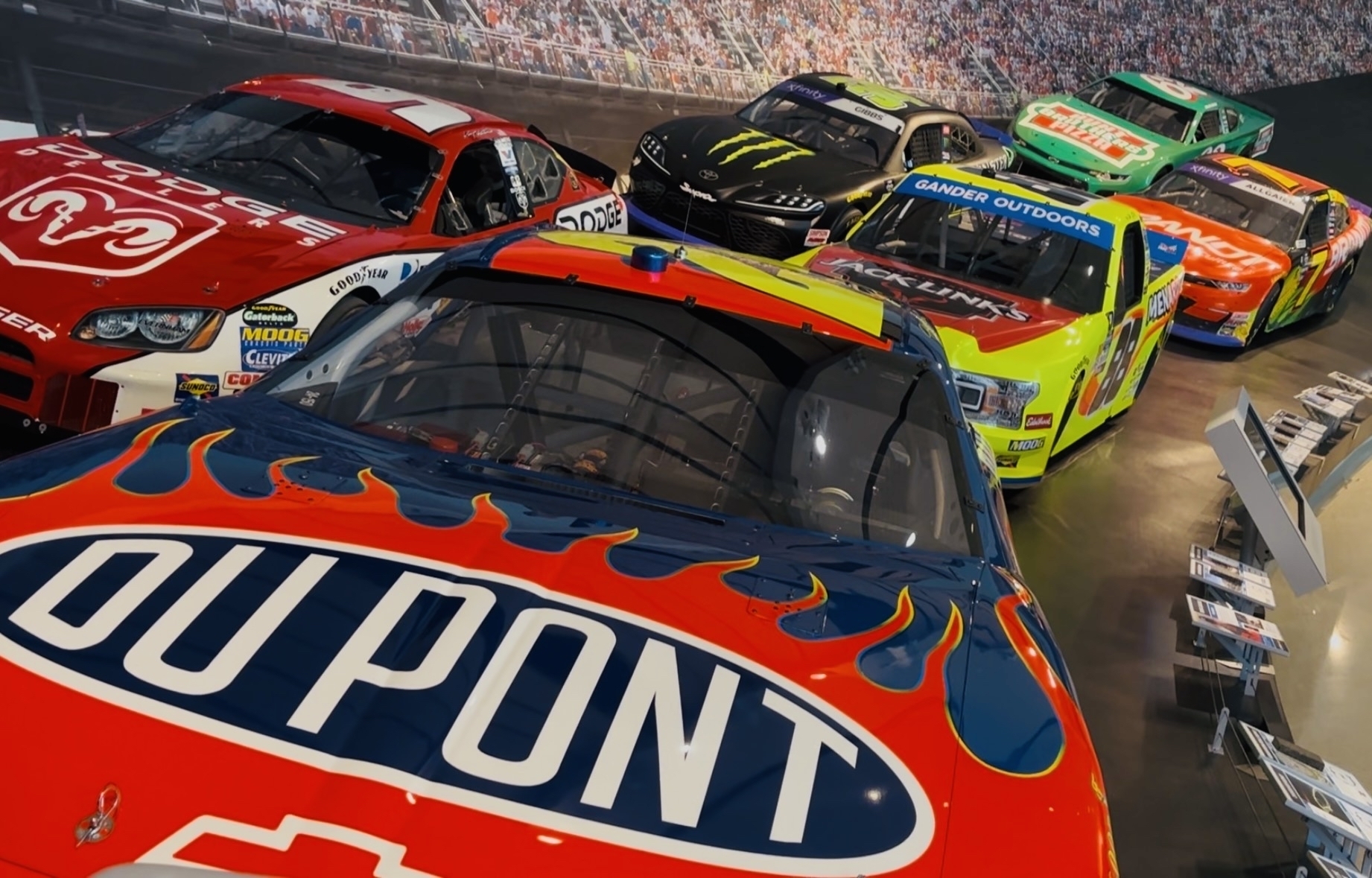Petty Patriarch Practiced Tough Love
by Tom Jensen February 29, 2024
What looked like a cold-hearted act by Lee Petty was in reality a good business decision. And his son bounced back nicely.
It’s a common dream of parents to want to see their children succeed more than they did.
Seeing your child get a better education and a better job than you did is one of the core components of the American dream: However good you had it, you want your children to have it even better. That’s human nature.
Of course, life is rarely that simple or clear-cut.
Take the Petty family, for example.

Lee (right) and Richard Petty weren’t just father and son; they were competitors on the racetrack in the late 1950s and early 60s. Photo courtesy of NASCAR Archives & Research Center via Getty Images
Family patriarch Lee Petty, a member of the NASCAR Hall of Fame Class of 2011, built his Lee Petty Engineering business into Petty Enterprises, a team that set two NASCAR Cup Series records that were only eclipsed in recent years, winning 268 races and 10 series championships.
Not surprisingly, Lee’s sons followed in his footsteps, with Richard (Class of 2010), setting and still holding the record for race wins with 200 and championships with seven, a title total subsequently equaled by Dale Earnhardt (Class of 2010) and Jimmie Johnson (Class of 2024). Richard’s brother Maurice (Class of 2014) became the team’s engine builder and occasional crew chief and driver. It was all about the family business.
Richard’s career mark of 200 race wins has never been approached and likely never will be. David Pearson (Class of 2011) has an impressive 105 victories, but that’s barely half of what Richard a/k/a “The King” has.
Still, Richard’s victory total could have been higher, were it not for his father Lee.
Here’s the story: On June 14, 1959, Lee and Richard both competed in a NASCAR Grand National Series (now Cup Series) sweepstakes race at Atlanta’s Lakewood Speedway, a challenging 1.0-mile dirt oval built around a massive infield lake.
The fact that it was a sweepstakes race meant both coupe and convertible body styles were eligible to compete in the event. So, at Lakewood, Lee drove his No. 42 1959 Plymouth coupe, while Richard piloted the No. 43 1957 Oldsmobile convertible that he drove earlier in the year in the inaugural Daytona 500.

Lee Petty drove a 1959 Plymouth like this one to victory at Atlanta’s Lakewood Speedway. Photo courtesy of NASCAR Archives & Research Center via Getty Images
When the checkered flag fell at the conclusion of the 150-mile race, Richard was declared the winner, with Lee second. It appeared that the younger Petty, who was a couple of weeks shy of turning 22 years old at the time, had won his first NASCAR race in just his 17th start.

Richard Petty’s ride at Atlanta was this 1957 Oldsmobile convertible. Photo courtesy of NASCAR Archives & Research Center via Getty Images
But here’s where things got interesting. Lee protested the finish, claiming he had lapped Richard and was the rightful winner. NASCAR officials reviewed the results and agreed with Lee, awarding him the victory, dropping Richard to second place.
Petty Enterprises was the family business, and Lee was nothing if not bottom-line oriented. And in this case, there was good money involved. The race paid a $500 bonus to the winner if he competed in a 1959 model car. Lee drove a ’59 Plymouth, while Richard raced in a ’57 Oldsmobile. That pretty much ended the debate. After all, $500 in 1959 – the equivalent of about $5,400 in today’s dollars – bought a lot of racing parts and put good food on the table in the Petty household.
Lee would go to win his third and final NASCAR driving championship in 1959, while Richard waited eight more months to get his first official NASCAR victory, which came at Charlotte's Southern States Fairgrounds on February 28, 1960.

Lakewood Speedway was one of the most popular tracks in the Southeast for many types of racing from 1917 through its closing in the late 1970s. Photo courtesy of NASCAR Archives & Research Center via Getty Images
Fortunately for NASCAR fans, “The King” is still a fixture at racetracks across the country. And losing to his father at Atlanta in 1959 certainly didn’t seem to set his career back much.
Plan your visit to the NASCAR Hall of Fame and purchase tickets by visiting nascarhall.com/tickets.














